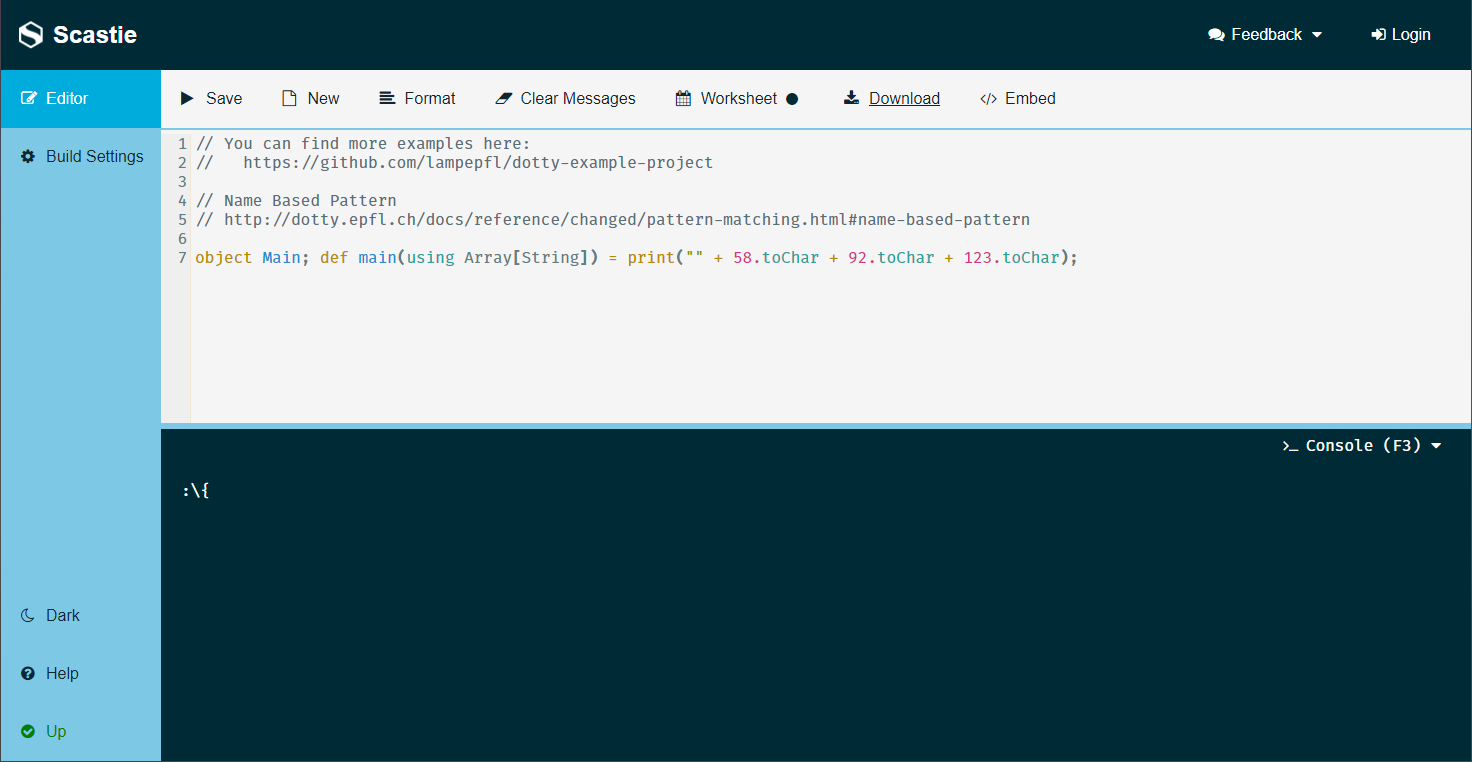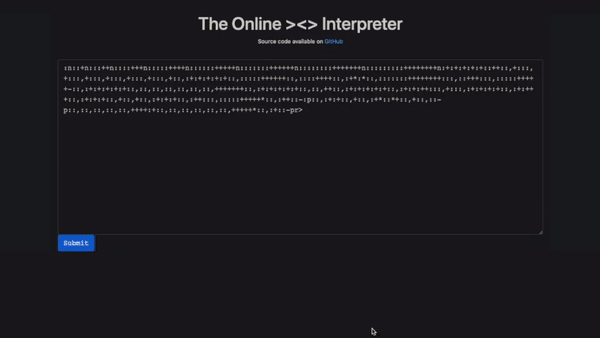...Who says I need inf to win?
klkl₃₃kl₃₃kWsĖ
Try it Online!
This ended up being really complicated, until I realized I was an idiot.
At first, I had a really big thing to get the last letter of a string, then I realized that that was stupid and I was stupid and Vyxal is stupid and I'm stupid, and I could remove a part of it completely, which would allow me to remove another part of it, golfing the solution by 8.5 exabytes.
So it turns out all I needed to do was get the last letter of kl, then use / and some things to remove it from kl, then get the last letter of that and remove it from that, etc. to get any letter command I wanted.
Getting the last letter turned out to be simple:
kl₃₃ # Push 1
kl₃₃ # Push 1
kW # Push `https://`
s # Sort
Ė # Execute
^ (This is the part that I overcomplicated. If you're curious, I talked a bit about it in chat.)
Being able to get the last letter of a string allowed me to get az/t from the builtins. As it turns out, / would end up being very handy. I was able to get the last letter of a builtin, e.g. a from kl, and then split the builtin on that letter, which would give me a list of that builin minus the letter, and an empty string. Then I could sort the list and get the last element, which would be the builtin without the removed letter.
klklkl₃₃kl₃₃kWsĖkWkl₃₃kl₃₃kWsĖĖskl₃₃kl₃₃kWsĖklklkl₃₃kl₃₃kWsĖkWkl₃₃kl₃₃kWsĖĖskl₃₃kl₃₃kWsĖkl₃₃kl₃₃kWsĖkWkl₃₃kl₃₃kWsĖĖskl₃₃kl₃₃kWsĖklklkl₃₃kl₃₃kWsĖkWkl₃₃kl₃₃kWsĖĖskl₃₃kl₃₃kWsĖklklkl₃₃kl₃₃kWsĖkWkl₃₃kl₃₃kWsĖĖskl₃₃kl₃₃kWsĖkl₃₃kl₃₃kWsĖkWkl₃₃kl₃₃kWsĖĖskl₃₃kl₃₃kWsĖkl₃₃kl₃₃kWsĖkWkl₃₃kl₃₃kWsĖĖskl₃₃kl₃₃kWsĖklklkl₃₃kl₃₃kWsĖkWkl₃₃kl₃₃kWsĖĖskl₃₃kl₃₃kWsĖklklkl₃₃kl₃₃kWsĖkWkl₃₃kl₃₃kWsĖĖskl₃₃kl₃₃kWsĖkl₃₃kl₃₃kWsĖkWkl₃₃kl₃₃kWsĖĖskl₃₃kl₃₃kWsĖklklkl₃₃kl₃₃kWsĖkWkl₃₃kl₃₃kWsĖĖskl₃₃kl₃₃kWsĖklklkl₃₃kl₃₃kWsĖkWkl₃₃kl₃₃kWsĖĖskl₃₃kl₃₃kWsĖkl₃₃kl₃₃kWsĖkWkl₃₃kl₃₃kWsĖĖskl₃₃kl₃₃kWsĖkl₃₃kl₃₃kWsĖkWkl₃₃kl₃₃kWsĖĖskl₃₃kl₃₃kWsĖkl₃₃kl₃₃kWsĖkWkl₃₃kl₃₃kWsĖĖskl₃₃kl₃₃kWsĖklklkl₃₃kl₃₃kWsĖkWkl₃₃kl₃₃kWsĖĖskl₃₃kl₃₃kWsĖklklkl₃₃kl₃₃kWsĖkWkl₃₃kl₃₃kWsĖĖskl₃₃kl₃₃kWsĖkl₃₃kl₃₃kWsĖkWkl₃₃kl₃₃kWsĖĖskl₃₃kl₃₃kWsĖklklkl₃₃kl₃₃kWsĖkWkl₃₃kl₃₃kWsĖĖskl₃₃kl₃₃kWsĖklklkl₃₃kl₃₃kWsĖkWkl₃₃kl₃₃kWsĖĖskl₃₃kl₃₃kWsĖkl₃₃kl₃₃kWsĖkWkl₃₃kl₃₃kWsĖĖskl₃₃kl₃₃kWsĖkl₃₃kl₃₃kWsĖkWkl₃₃kl₃₃kWsĖĖskl₃₃kl₃₃kWsĖklklkl₃₃kl₃₃kWsĖkWkl₃₃kl₃₃kWsĖĖskl₃₃kl₃₃kWsĖklklkl₃₃kl₃₃kWsĖkWkl₃₃kl₃₃kWsĖĖskl₃₃kl₃₃kWsĖkl₃₃kl₃₃kWsĖkWkl₃₃kl₃₃kWsĖĖskl₃₃kl₃₃kWsĖklklkl₃₃kl₃₃kWsĖkWkl₃₃kl₃₃kWsĖĖskl₃₃kl₃₃kWsĖklklkl₃₃kl₃₃kWsĖkWkl₃₃kl₃₃kWsĖĖskl₃₃kl₃₃kWsĖkl₃₃kl₃₃kWsĖkWkl₃₃kl₃₃kWsĖĖskl₃₃kl₃₃kWsĖkl₃₃kl₃₃kWsĖkWkl₃₃kl₃₃kWsĖĖskl₃₃kl₃₃kWsĖkl₃₃kl₃₃kWsĖkWkl₃₃kl₃₃kWsĖĖskl₃₃kl₃₃kWsĖkl₃₃kl₃₃kWsĖkWkl₃₃kl₃₃kWsĖĖskl₃₃kl₃₃kWsĖ
Try it Online!
This allowed me to create an exponentially growing program to get any letter from the builtin, which allowed me to increment using the same methods I've used before. It also allowed me to get C to convert the numbers to characters.
The entire program is pretty much just a bunch of kl₃₃kl₃₃kWsĖ repeated over and over, with some other stuff sprinkled in.
Here's an example printing !: wow this program is just absolutely too long there's no way im going to be able to even put it in a gist but here you go


